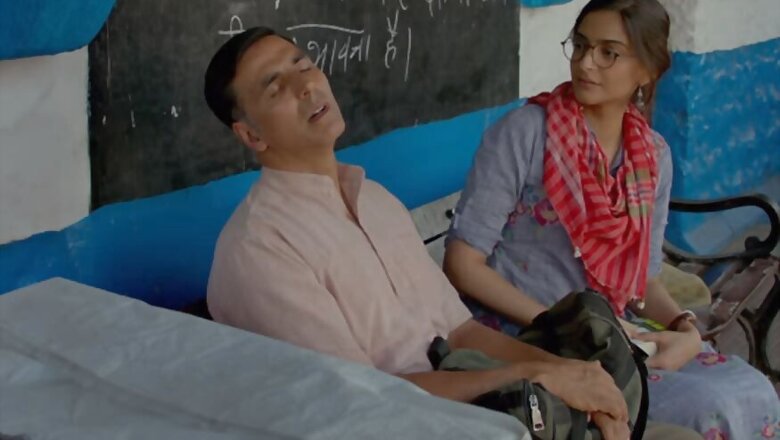
views
“Auraton ke liye sabse badi beemari hai sharam (the biggest disease for women is shame),” - this line from the Akshay Kumar-starrer PadMan suggests how women are often forced to believe that they always need to be under some kind of veil which they can never remove. But I’m glad that's not what director R Balki wants to convey through his social drama, at all.
Besides depicting the journey of social activist Arunachalam Muruganatham, PadMan breaks the menstrual taboo which remains prevalent through much of the country. Without wasting much time on the decoration of the build-up, Balki gets straight to the point in the movie. Lakshmikant (portrayed by Akshay) is a loving husband, who cannot see his wife in any kind of problem and would go to any extent to make things better for his life partner, Gayatri (played by Radhika Apte).
Soon things turn upside down in their lives as Lakshmi notices how his wife is ostracized from the house during "that time of the month." His concerns for Gayatri rise when he sees her using a dirty cloth to clean the menstrual blood. Thereafter, he promises himself that he will not let that happen to his wife and brings a disposable sanitary napkin for her. However, Gayatri is against the idea of using it because of its high cost. What happens next is Lakshmi's inspirational journey that sees him become "something" from nothing.
The way Balki and writer Swanand Kirkire have used humor in the film to say what is unspeakable -- and even unthinkable for some hypocrites -- is appreciable. However, the film does get repetitive at times but only for us to realize that change doesn't come easy. Instead of Coimbatore, the native place of Muruganatham, Balki chooses a more central part of India as the backdrop for his film. However, the Banaras Ghats could have been shot from multiple angles to give a better impression of the beautiful locales of the city.
Rather than ending the awkward silence around menstruation, PadMan throws up forbidden topics for discussion and also questions the notion of masculinity even as Lakshmikant asks "Ek aurat ki hifazat karne mein nakamayab insaan apne aapko mard kaise keh sakta hai?"
With an incredible amount of support by Radhika Apte's Gayatri in the first half and by Sonam Kapoor's Pari in the latter, Akshay is great in portraying Lakshmi. He is honest, determined and, most importantly, insulated from typical societal norms. Whilst watching a film the eyes are automatically and inevitably drawn to the protagonist but Sonam and Radhika's characters successfully manage to make their presence felt. However, other actors only ham it up on screen and make zero contribution to the film.
Amit Trivedi's composition is soulful and soothing, thanks to his ability to infuse the rich textures and sounds of Indian folk music with drum beats and guitars. Kudos to R Balki for making Akshay Kumar a "superhero" in the true sense.




















Comments
0 comment